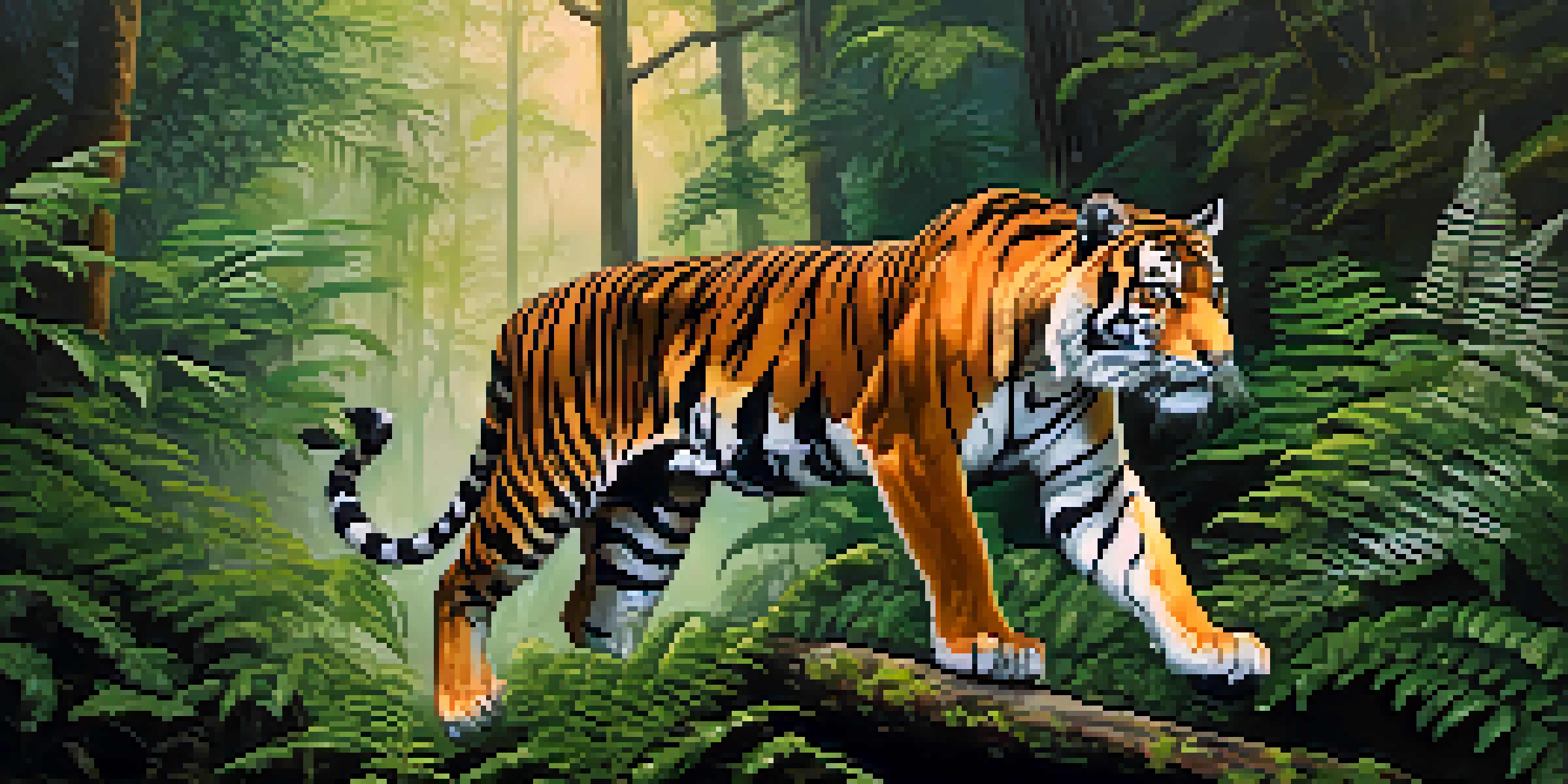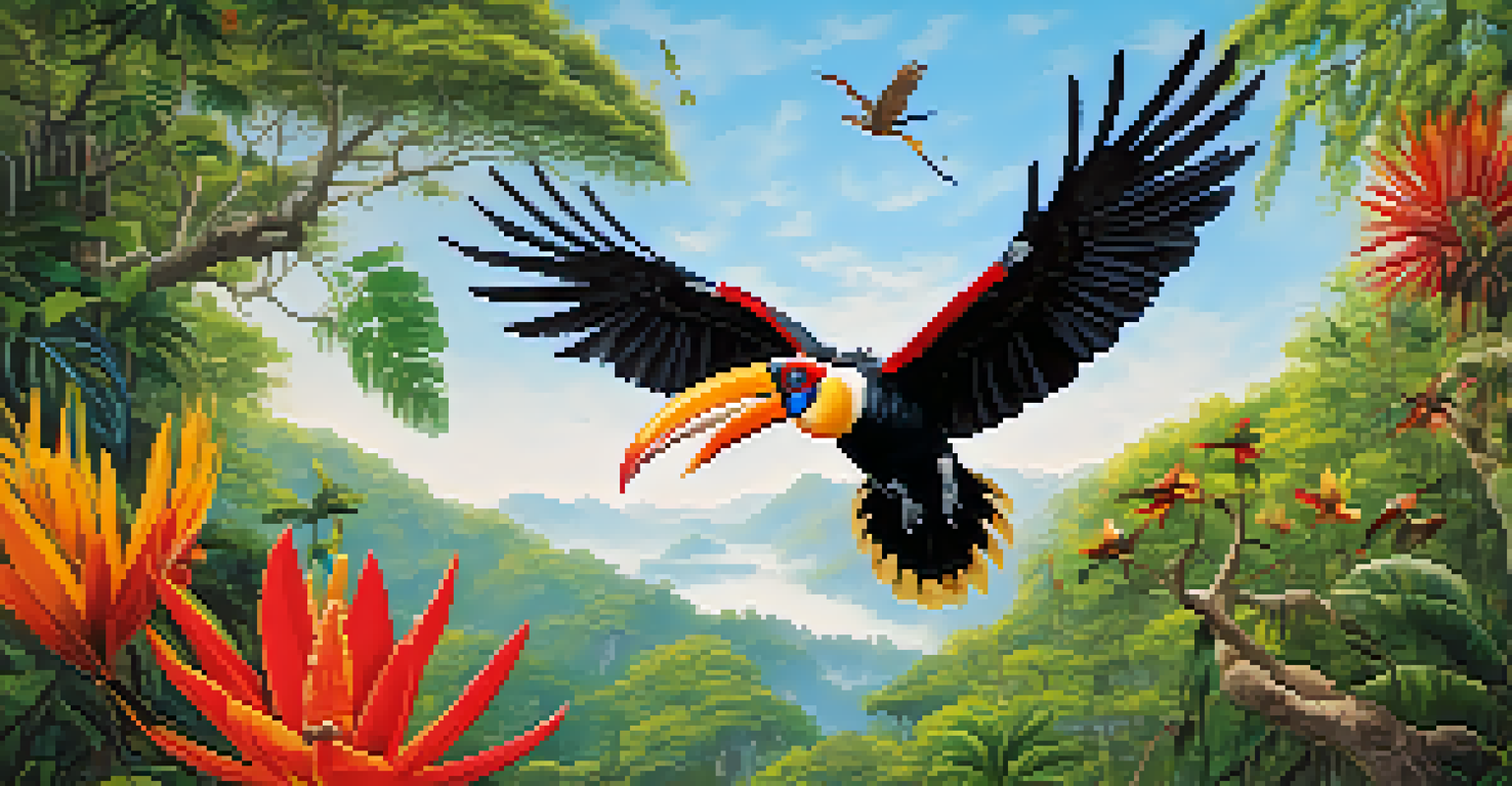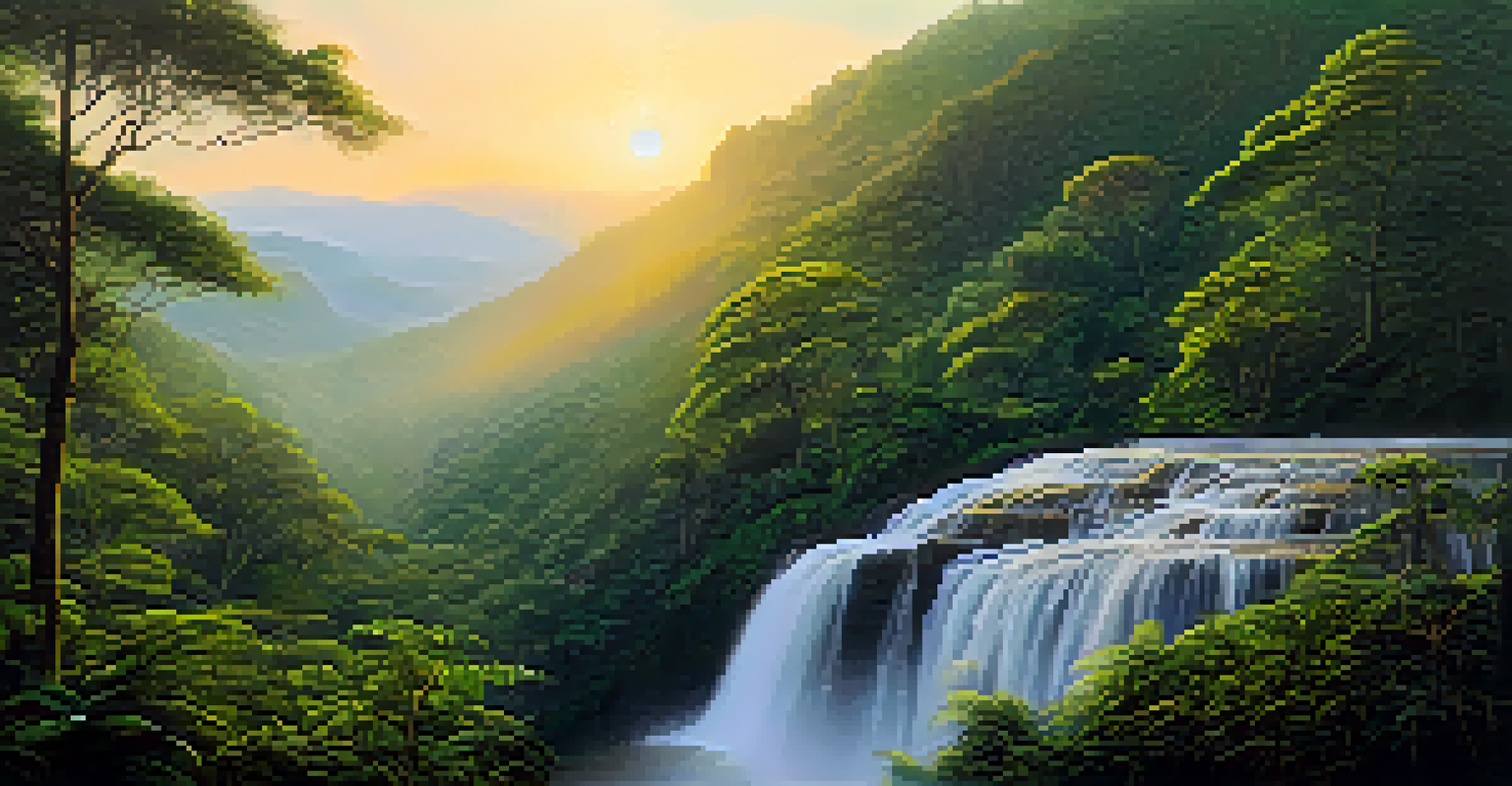Wildlife Photography Workshops in Thailand's Unique Ecosystems

Introduction to Wildlife Photography in Thailand
Wildlife photography in Thailand offers a unique glimpse into vibrant ecosystems that are home to diverse species. From lush jungles to serene wetlands, each environment presents its own set of challenges and rewards for photographers. Workshops in these stunning locations allow you to hone your skills while being surrounded by breathtaking landscapes and wildlife.
In every walk with nature one receives far more than he seeks.
Imagine capturing the elusive Indochinese tiger prowling through the dense forest or the colorful feathers of a hornbill soaring overhead. These experiences not only enrich your portfolio but also deepen your appreciation for nature. Whether you're a beginner or a seasoned photographer, there's always something new to learn in the field.
Participating in a wildlife photography workshop can also foster a sense of community among like-minded individuals. Sharing tips, stories, and experiences can inspire creativity and enhance your skills. Plus, you get to explore Thailand's natural beauty with fellow enthusiasts who share your passion.
Top Locations for Wildlife Photography Workshops
Thailand is home to a plethora of ecosystems, each offering unique wildlife photography opportunities. Some of the most popular locations include Khao Sok National Park, known for its dense rainforests and limestone cliffs, and Doi Inthanon National Park, where you can find diverse bird species and stunning waterfalls. These parks provide not just scenery but also a chance to capture animals in their natural habitats.

Another prime location is Kaeng Krachan National Park, which boasts the largest national park in Thailand. Its varied landscapes, from open grasslands to thick jungles, create a mosaic of wildlife opportunities ranging from elephants to gibbons. Each workshop typically includes guided excursions to these hotspots, ensuring you don’t miss out on prime photo opportunities.
Explore Thailand's Rich Wildlife
Thailand's diverse ecosystems offer photographers unique opportunities to capture stunning wildlife in their natural habitats.
Lastly, consider workshops that focus on marine life, such as those held in the Similan Islands. Here, underwater photography enthusiasts can capture vibrant coral reefs and a plethora of fish species. These diverse locations make Thailand an ideal destination for wildlife photography workshops, catering to all interests and skills.
What to Expect from a Wildlife Photography Workshop
Wildlife photography workshops are typically structured to provide a balance of instruction and hands-on practice. Expect expert guidance from experienced photographers who can teach you about camera settings, lighting, and composition. These workshops often include both classroom sessions and field trips, allowing you to apply what you learn immediately.
Photography is the story I fail to put into words.
You'll also have the chance to learn about the behavior of various species, which is crucial for capturing that perfect shot. Understanding animals' habits and habitats can significantly improve your photography. Instructors often share tips on how to be patient and respectful while observing wildlife, emphasizing the importance of ethical photography.
Moreover, workshops often foster a collaborative environment where participants can share feedback and critiques. This constructive approach not only enhances your skills but also builds confidence as you see your progress unfold. By the end of the workshop, you’ll likely leave with not just stunning photographs but also lasting friendships and memories.
Essential Gear for Wildlife Photography in Thailand
When attending a wildlife photography workshop, the right gear can make all the difference. While it’s tempting to bring every piece of equipment, focusing on essentials can help lighten your load. A good DSLR or mirrorless camera with a versatile zoom lens, such as 24-70mm or 100-400mm, is crucial for capturing wildlife at various distances.
Don’t forget about accessories like a sturdy tripod for stability, especially in low-light conditions, and extra batteries to ensure you don’t miss any moments. A weather-sealed camera bag is also essential to protect your gear from the unpredictable tropical weather. Additionally, a good pair of binoculars can enhance your wildlife viewing experience before you even lift your camera.
Learn Ethical Photography Practices
Ethical wildlife photography is crucial for respecting animals and their habitats while ensuring conservation efforts are supported.
Lastly, consider bringing a laptop or tablet for quick edits and backups. Many workshops include sessions on post-processing, so having your device handy can be beneficial. Being well-prepared with the right gear allows you to focus on your photography and enjoy the experience fully.
The Importance of Ethical Wildlife Photography
Ethical wildlife photography is paramount, especially in diverse ecosystems like Thailand's. It's essential to respect animals and their habitats while capturing stunning images. This means maintaining a safe distance, avoiding disturbing wildlife, and following guidelines set by local conservation authorities. Ethical practices ensure that wildlife is not harmed or stressed during your photography pursuits.
Workshops often emphasize the principles of ethical photography, teaching you how to minimize your impact while maximizing your photographic opportunities. Understanding animal behavior is a key component of this, as it allows you to anticipate movements without encroaching on their space. Ethical photographers not only aim for beautiful shots but also advocate for the protection of the wildlife they capture.
By practicing ethical photography, you contribute to conservation efforts and help raise awareness about the importance of preserving these unique ecosystems. Every image you take can tell a story, and with responsible practices, you can inspire others to appreciate and protect wildlife and their habitats.
Benefits of Joining a Photography Community
Joining a wildlife photography workshop in Thailand also means becoming part of a vibrant community. Engaging with fellow photographers allows for networking, collaboration, and sharing of ideas. These connections can lead to future photography opportunities, whether you’re looking to travel together or simply exchange tips and techniques.
Community involvement often extends beyond workshops. Many participants stay connected through social media groups or local clubs, where they can share their work and seek feedback. This ongoing engagement helps to keep your passion alive and can provide motivation to continue improving your skills long after the workshop ends.
Join a Supportive Photography Community
Wildlife photography workshops foster connections among enthusiasts, providing ongoing support, collaboration, and motivation.
Being part of a community also means having access to resources like group outings, exhibitions, and competitions. These can provide additional avenues for growth and exposure in the field of wildlife photography. Ultimately, the relationships you build during a workshop can enrich your photography journey and lead to lifelong friendships.
Conclusion: Capture Memories in Thailand's Wild
In conclusion, wildlife photography workshops in Thailand offer an incredible opportunity to enhance your skills while immersing yourself in nature. From the stunning landscapes to the rich biodiversity, each moment spent photographing wildlife is bound to be memorable. These workshops not only teach you technical skills but also instill a deeper appreciation for the natural world.
As you embark on this photographic journey, remember to embrace the learning process and enjoy the adventure. Whether you’re capturing a fleeting moment of a leopard or the serene beauty of a sunrise over the jungle, each click of the shutter is a chance to create art. Plus, the friendships and experiences you gain along the way will stay with you for years to come.

So gear up, pack your camera, and get ready to explore Thailand's unique ecosystems through the lens of your camera. With the right mindset and tools, you'll return home with not just photographs, but unforgettable memories and newfound skills.